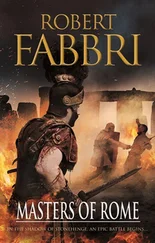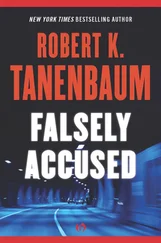Robert Fabbri - False God of Rome
Здесь есть возможность читать онлайн «Robert Fabbri - False God of Rome» весь текст электронной книги совершенно бесплатно (целиком полную версию без сокращений). В некоторых случаях можно слушать аудио, скачать через торрент в формате fb2 и присутствует краткое содержание. Жанр: Исторические приключения, на английском языке. Описание произведения, (предисловие) а так же отзывы посетителей доступны на портале библиотеки ЛибКат.
- Название:False God of Rome
- Автор:
- Жанр:
- Год:неизвестен
- ISBN:нет данных
- Рейтинг книги:3 / 5. Голосов: 1
-
Избранное:Добавить в избранное
- Отзывы:
-
Ваша оценка:
- 60
- 1
- 2
- 3
- 4
- 5
False God of Rome: краткое содержание, описание и аннотация
Предлагаем к чтению аннотацию, описание, краткое содержание или предисловие (зависит от того, что написал сам автор книги «False God of Rome»). Если вы не нашли необходимую информацию о книге — напишите в комментариях, мы постараемся отыскать её.
False God of Rome — читать онлайн бесплатно полную книгу (весь текст) целиком
Ниже представлен текст книги, разбитый по страницам. Система сохранения места последней прочитанной страницы, позволяет с удобством читать онлайн бесплатно книгу «False God of Rome», без необходимости каждый раз заново искать на чём Вы остановились. Поставьте закладку, и сможете в любой момент перейти на страницу, на которой закончили чтение.
Интервал:
Закладка:

Robert Fabbri
False God of Rome
PROLOGUE
JERUSALEM, APRIL AD 33
An abrupt knock on the door woke Titus Flavius Sabinus with a start; his eyes flicked open. Momentarily unsure of his whereabouts, he jerked his head up off the desk and looked around the room. The muted light of the fading sun seeping in through a narrow open window was enough for him to be able to make out the unfamiliar surroundings: his study in the tower of the Antonia Fortress. Outside the window the Temple soared to the sky, dominating the view. Its high, white marble-clad walls glowed an evening red and the gold leaf that adorned its roof glistered with sunset. Such was the scale of the Jews’ most holy building that it dwarfed the huge columns supporting the expansive quadrangle that surrounded it; they in turn made the multitude of figures, scuttling between them and back and forth across the vast courtyard that the colonnade encompassed, seem no larger than ants.
The tang of blood from thousands of lambs being slaughtered within the Temple complex for the Passover meal that evening infused the room’s chill air. Sabinus shivered; he had become cold during his brief sleep.
The knock was repeated more insistently.
‘Quaestor, are you in there?’ a voice shouted from the other side of the door.
‘Yes, enter,’ Sabinus called back, quickly arranging the scrolls on the desk to suggest that he had been immersed in diligent work rather than taking a late afternoon nap to recover from his two-day journey to Jerusalem from Caesarea, the provincial capital of Judaea.
The door opened; an auxiliary centurion marched in and snapped to attention before the desk, his traverse-plumed helmet held stiffly under his left arm. ‘Centurion Longinus of the Cohors Prima Augusta reporting, sir,’ he barked. His face was tanned and wrinkled as old leather from years of service in the East.
‘What is it, centurion?’
‘Two Jews are requesting an audience with the prefect, sir.’
‘Then take them to him.’
‘He’s dining with a Jewish prince from Iudemaea and some Parthians who’ve just arrived in the city; he’s drunk as a legionary on leave. He said that you should deal with them.’
Sabinus grunted; since being sent to Judaea ten days previously, to audit its tax revenues at the behest of his superior — the Governor of Syria, who held ultimate authority over Judaea — he had already had enough dealings with Prefect Pontius Pilatus to realise the truth of the statement. ‘Tell them to come back in the morning when the prefect is more approachable,’ he said dismissively.
‘I have, sir, but one of them is a malchus , or captain, of the Temple Guard sent by the High Priest Caiaphas; he was most insistent that the information that he has concerns something due to happen this evening, after the Passover meal.’
Sabinus sighed; although new to the province he had gleaned enough knowledge of the complex political infighting between Rome’s turbulent subjects to know that Caiaphas owed his position to Roman favour and was therefore the closest thing to an ally that he could expect to find among the mainly hostile Jewish population of this combustible city. With the city bursting with pilgrims it would be bad politics to upset an ally during the Passover that he and the prefect had both come to Jerusalem to oversee.
‘Very well then, centurion, show them up.’
‘Best you come down, sir, where we can keep them at a distance from you.’ Longinus pulled two short, curved knives from his belt. ‘We found these hidden in the clothes of the other man.’
Sabinus took the knives and examined the razor-sharp blades. ‘What are they?’
‘ Sicae , sir; which would mean that he’s a member of the Sicarii.’
Sabinus looked blankly at the centurion.
‘They’re religious assassins, sir,’ Longinus continued by way of explanation, ‘they believe that they’re doing their god’s work by eliminating those they consider to be impure and blasphemers; that covers just about everybody who’s not a member of their sect. He’d think nothing of trying to kill you even if he died in the attempt. They believe that if they’re killed doing holy work then, when this Messiah who they’ve been awaiting for ages finally shows up, they’ll be resurrected along with all the other righteous dead, on what they call the End of Days, to live in an earthly paradise under their god’s laws forever.’
‘They make the Zealots seem like reasonable people,’ Sabinus observed, alluding to the Jewish sect that had hitherto been the most unreasonable bunch of religious extremists he had heard of.
‘There’s no such thing as reason in this arsehole of the Empire.’
Sabinus paused to reflect upon the truth of that statement. ‘Very well, centurion, I’ll come down; go and announce me.’
‘Sir!’ Longinus saluted and marched briskly out of the room.
Sabinus shook his head; he rolled up the scrolls containing the audit of Jerusalem’s tax revenues for the past year — the cause of his earlier slumber — adjusted his toga and then followed. Although it offended his dignitas to go down to meet the Jews rather than have them shown into his presence he knew enough of their nature to take the advice of this seasoned centurion; he did not want to become the victim of some suicidal religious fanatic.
‘My name is Gaius Julius Paulus,’ the shorter of the two Jews announced in an impatient tone as Sabinus entered the Fortress’s great hall. ‘I am a Roman citizen and a captain in the Temple Guard and I demanded to see the prefect, not his underling.’
‘The prefect is indisposed so you will talk to me,’ Sabinus snapped, taking an instant dislike to this self-important, bowlegged little Jew, ‘and show me the respect due to my rank as quaestor to the Governor of Syria, the prefect of Judaea’s direct superior, or otherwise, citizen or not, I’ll have you flogged out of the Fortress.’
Paulus swallowed and ran a hand through his thinning hair. ‘Forgive me, quaestor, I meant no offence,’ he said with a voice suddenly oozing obsequiousness. ‘I come with a request from the High Priest concerning the agitator and blasphemer Yeshua bar Yosef.’
‘Never heard of him,’ Sabinus said flatly, ‘what’s he done?’
‘He’s another one of those Messiah claimants, sir,’ Longinus informed him. ‘We’ve been trying to apprehend him for sedition since he caused a riot when he arrived in the city four days ago. He threatened the authority of Caesar by claiming that he was a king; quite a few people were killed, including three of my auxiliaries. Then he pissed off the High Priest by going to the Temple and offending just about everyone he could before turning over all the money changers’ tables.’
‘What are money changers doing in the Temple?’ Sabinus asked, genuinely curious.
‘The Jews think that our money is idolatrous as it has Caesar’s head on it, so they’re allowed their own Temple currency to buy sheep for sacrifice and such like. The changers make a tidy profit on the exchange rate, as you might imagine.’
Sabinus raised his eyebrows; he was ceasing to find anything surprising about these people. He turned back to the two Jews; the second man, tall, full-bearded with oiled, black hair flowing from beneath a headdress wound about his head, remained motionless staring at Sabinus with hate-filled eyes. His hands had been bound in front of him. He was no rough, country peasant. His long-sleeved, light blue robe fell to his ankles; it was clean and seamless, expensively woven as one piece of material, the sign of a wealthy man. The fine quality of the black and white mantle that he wore draped over his shoulders added to that impression.
Читать дальшеИнтервал:
Закладка:
Похожие книги на «False God of Rome»
Представляем Вашему вниманию похожие книги на «False God of Rome» списком для выбора. Мы отобрали схожую по названию и смыслу литературу в надежде предоставить читателям больше вариантов отыскать новые, интересные, ещё непрочитанные произведения.
Обсуждение, отзывы о книге «False God of Rome» и просто собственные мнения читателей. Оставьте ваши комментарии, напишите, что Вы думаете о произведении, его смысле или главных героях. Укажите что конкретно понравилось, а что нет, и почему Вы так считаете.












